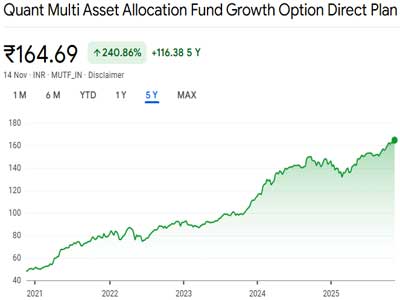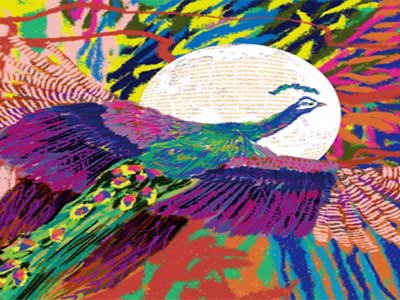India's pervasive VIP culture is a stark reminder of the country's undemocratic and feudal mindset. This elitist phenomenon, which perpetuates the notion that some individuals are more equal than others, is a blatant negation of the rule of law and socialist values. It's a humiliating spectacle that reinforces class bias, promotes gaps, and widens differences between the haves and have-nots.
Why do politicians and bureaucrats enjoy privileged treatment, surrounded by a fleet of cars and irksome security, while commoners are made to feel small and insignificant? This culture of elitism is not only an eyesore but also a reflection of the deep-seated resentment against the systemic inequality that affects daily life and services.
Read in Hindi: भारत के लोकतंत्र पर धब्बा है वीआईपी संस्कृति
The Modi government's tokenistic gestures have done little to eliminate this noxious anti-people culture. It's time for the current dispensation to initiate major equalizing initiatives to change the socio-economic and cultural equations. India needs a more humane, egalitarian society that respects the civil rights of all citizens, not just the privileged few.
The VIP culture must be dismantled, and a new era of equality and inclusivity ushered in. Only then can India truly claim to be a democracy that values the principles of socialism and equality. The time for change is now.
The VIP culture in India is not a new phenomenon. It has its roots in the colonial era when the British rulers created a class of elites to serve their interests. This class of elites, which included landlords, bureaucrats, and politicians, enjoyed special privileges and powers that were denied to the common people. After independence, this culture of elitism continued, with the new ruling class adopting the same practices and attitudes as their colonial predecessors.
One of the most visible manifestations of VIP culture is the use of red beacons on cars. These beacons, which are supposed to signify the presence of a high-ranking official, have become a symbol of power and privilege. They allow VIPs to bypass traffic, ignore rules, and assert their superiority over ordinary citizens. Despite several attempts to ban the use of red beacons, they continue to be used by many politicians and bureaucrats, reflecting their sense of entitlement and disregard for the law.
Another aspect of VIP culture is the extensive security arrangements provided to politicians and bureaucrats. While security is necessary for those who face genuine threats, it is often used as a status symbol by those who do not. The sight of VIPs surrounded by a large entourage of security personnel is a common one in India, and it serves to reinforce the idea that they are more important and deserving of protection than the common people.
VIP culture also extends to the provision of special facilities and services for politicians and bureaucrats. From exclusive lounges at airports to reserved seats at public events, VIPs enjoy a range of privileges that are denied to ordinary citizens. This not only creates a sense of resentment among the common people but also undermines the principles of equality and fairness that are supposed to underpin a democratic society.
The impact of VIP culture on public services is particularly pernicious. In many cases, the needs and interests of VIPs take precedence over those of the common people. For example, in hospitals, VIPs often receive preferential treatment, while ordinary patients are left waiting for hours or even days. In schools, the children of VIPs are given special attention and resources, while the children of ordinary citizens are neglected. This not only perpetuates inequality but also erodes public trust in the institutions that are supposed to serve all citizens equally.
The persistence of VIP culture in India is a reflection of the deep-seated social and economic inequalities that continue to plague the country. Despite the progress that has been made in recent years, a large section of the population remains marginalized and excluded from the benefits of development. The existence of a privileged class that enjoys special treatment and privileges only serves to exacerbate these inequalities and create a sense of alienation and disillusionment among the common people.
To dismantle VIP culture, it is essential to address the underlying social and economic inequalities that give rise to it. This requires a concerted effort to promote inclusive development, ensure equal access to resources and opportunities, and create a more equitable distribution of wealth and power. It also requires a change in mindset, with a greater emphasis on the principles of equality, fairness, and social justice.
The government has a crucial role to play in this process. It must take concrete steps to eliminate the symbols and practices of VIP culture, such as the use of red beacons and the provision of special privileges and facilities. It must also ensure that public services are accessible and responsive to the needs of all citizens, not just the privileged few. This requires a commitment to transparency, accountability, and the rule of law, as well as a willingness to challenge the entrenched interests and power structures that perpetuate VIP culture.
Indeed the VIP culture in India is a blight on the country's democracy. It undermines the principles of equality and fairness, perpetuates social and economic inequalities, and creates a sense of alienation and resentment among the common people. To build a more inclusive and egalitarian society, it is essential to dismantle VIP culture and promote a culture of equality and social justice. The time for change is now.


















Related Items
India stuck in traffic; Cities halt, Horns holler, and time takes a nap
India’s deep dark fraud economy unveiled…
Bangladesh’s Radicals vs India’s Liberals, A dangerous imbalance…